If you’ve ever wondered what actually bumps up the chances of developing pancreatic cancer, the answer isn’t mysterious—it’s mostly about everyday habits, your family story, and a few things you can’t change. Below you’ll find a friendly rundown of the biggest risk factors, the science behind them, and simple steps you can take right now to protect yourself. Grab a cup of tea, settle in, and let’s walk through this together.
Modifiable Risk Factors
Smoking – the single biggest preventable cause
When it comes to pancreatic cancer, smoking is the heavyweight champion of risk. Studies from Pancreatic Cancer Canada indicate that 20‑30 % of cases are directly linked to tobacco use. Even a single pack a day for ten years can double your risk, while quitting can start lowering that risk within months.
How many cigarettes equal one “risk unit”?
| Pack‑Years | Relative Risk (RR) |
|---|---|
| 0–10 | 1.2 |
| 11–20 | 1.6 |
| 21–30 | 2.0 |
| 31+ | 2.5+ |
Pack‑years are calculated by multiplying the number of packs smoked per day by the number of years you’ve smoked. The more you accumulate, the steeper the climb in risk.
Obesity & Body‑Mass Index
Carrying extra weight isn’t just hard on the knees—it also nudges pancreatic cancer risk upward. A body‑mass index (BMI) of 30 kg/m² or higher can increase the odds by about 1.5‑2 times, according to research highlighted by Pancreatic Cancer Canada.
Practical weight‑loss tips that also cut pancreatic risk
- Swap sugary drinks for sparkling water flavored with citrus.
- Introduce a 30‑minute walk after dinner—consistency beats intensity.
- Fill half your plate with colorful veggies; they’re low‑calorie and high in fiber.
Heavy Alcohol Use & Chronic Pancreatitis
Alcohol on its own isn’t a straight‑line villain, but excessive drinking can trigger chronic pancreatitis, a condition that inflames the pancreas and lays the groundwork for cancer. The Johns Hopkins Medicine team explains that long‑term inflammation releases toxins that damage DNA, eventually leading to malignant growth.
Safe drinking limits
Guidelines from the American Cancer Society recommend no more than one drink per day for women and two for men. Keeping to these limits dramatically lowers the chance of developing chronic pancreatitis—and, by extension, pancreatic cancer.
Diabetes & Blood‑Sugar Management
Living with type 2 diabetes doubles the likelihood of pancreatic cancer, a connection noted by both Pancreatic Cancer Canada and the Australian Cancer Authority. While the exact mechanism is still being studied, high insulin levels and chronic inflammation are probable culprits.
Lifestyle moves that improve glucose control
- Choose whole grains over refined carbs; they cause slower glucose spikes.
- Snack on nuts or Greek yogurt instead of candy.
- Schedule regular check‑ups with your doctor to fine‑tune medication.
Inherited Risk Factors
Age – risk climbs sharply after 60
Pancreatic cancer is a disease of older adults. The average age at diagnosis sits around 71, and incidence skyrockets after you hit 60. Cancer Australia reports that people over 65 are several times more likely to develop the disease than those in their 40s.
Age‑by‑numbers infographic
| Age Range | Approx. Lifetime Risk |
|---|---|
| 40‑49 | 0.5 % |
| 50‑59 | 1.2 % |
| 60‑69 | 2.5 % |
| 70‑79 | 4.8 % |
| 80+ | 6.5 % |
Family History & Hereditary Syndromes
About 10 % of pancreatic cancers run in families. If two first‑degree relatives (parents, siblings, children) have been diagnosed, your risk jumps up to nine times the average. Certain inherited gene mutations—BRCA2, PALB2, CDKN2A (FAMMM), Lynch syndrome, Peutz‑Jeghers, and others—are well‑documented culprits (Pancreatic Cancer North America).
When to seek genetic counseling
- Two or more close relatives diagnosed with pancreatic cancer.
- One relative diagnosed before age 50.
- Known family mutation (e.g., BRCA2, PALB2).
A certified genetic counselor can walk you through testing options, interpret results, and suggest surveillance strategies tailored to your personal risk.
Gender & Ethnicity
Men have a modestly higher risk—about 1.2 times that of women. Ethnicity also matters: African‑American communities see a higher incidence, while Ashkenazi Jews carry a slightly elevated risk due to the BRCA2 founder mutation. These patterns are highlighted by the Pancreatic Cancer Action Network and Cancer Australia.
How ethnicity interacts with other risk factors
For example, a Black individual who smokes and has a high BMI faces a compounded risk that can be more than the sum of its parts. Understanding these intersections helps you prioritize the changes you can actually control.
Emerging Risk Factors
Red & Processed Meat, Dietary Patterns
Research on meat consumption is a bit of a mixed bag, but several meta‑analyses suggest that eating large amounts of processed or red meat may nudge risk upward. The evidence isn’t iron‑clad, so we call it “possible” rather than “confirmed.” Still, swapping a daily bacon strip for a plant‑based protein can be a win‑win for heart health and pancreatic safety.
What a balanced plate looks like for pancreas health
- Half the plate: colorful non‑starchy vegetables (broccoli, bell peppers, leafy greens).
- Quarter: lean protein (fish, legumes, tofu).
- Quarter: whole grains (quinoa, brown rice) or a starchy veg in moderation.
- Optional: a small handful of nuts or seeds for healthy fats.
Occupational Exposures (pesticides, heavy metals, asbestos)
Jobs that involve handling industrial chemicals, pesticides, or asbestos have been linked to a modest rise in pancreatic cancer risk. If you work in such environments, using proper protective equipment and following safety protocols can make a difference (Cancer Australia).
Blood Type & Other Possible Links
A handful of studies have hinted that people with non‑O blood types might face a slightly higher risk, but the data are still tentative. We mention it simply to illustrate how science is always evolving—what’s “maybe” today could become “definitely” tomorrow.
Link Between Early Symptoms & Risk Awareness
Knowing your risk factors sharpens your sense of when something feels off. Common pancreatic cancer symptoms—new‑onset diabetes, unexplained weight loss, jaundice, or persistent abdominal pain—should prompt a medical check‑up, especially if you have several risk factors ticking the boxes.
Prevention Checklist – Turn Knowledge into Action
Below is a quick‑reference list you can print, stick on the fridge, or keep in your phone notes. Each item pairs a simple action with the science that backs it up.
| Action | Why It Helps |
|---|---|
| Quit smoking | Risk starts dropping within months; approaches never‑smoker levels after ~10‑15 years (Pancreatic Cancer Canada) |
| Maintain BMI ≤ 25 kg/m² | Obesity roughly doubles risk (Pancreatic Cancer Canada) |
| Limit alcohol to ≤ 1 drink/day (women) / ≤ 2 drinks/day (men) | Reduces chronic pancreatitis risk, a known pathway to cancer (Johns Hopkins Medicine) |
| Control blood sugar | Type 2 diabetes is linked to a 2× higher cancer risk (Pancreatic Cancer Canada) |
| Write down family cancer history | Helps doctors decide if genetic testing or early screening is needed (Cancer Australia) |
| Get screened if high‑risk | Annual MRI or endoscopic ultrasound can catch lesions before symptoms appear (Roswell Park) |
| Eat more plant‑based foods | Fiber‑rich diets may lower risk; reduce red/processed meat intake (Cancer Australia) |
Feel free to pick one or two items to start with—progress is better than perfection.
Take Action Today
Understanding pancreatic cancer risk factors isn’t just academic; it’s a roadmap for better health. By addressing the things you can change—smoking, weight, alcohol, blood sugar—you are actively lowering your odds. Meanwhile, staying aware of your age, family history, and any inherited syndromes lets you and your doctor plan smarter screening.
What’s the first step you feel comfortable taking? Maybe it’s a quick call to a quit‑smoking line, or a conversation with a relative about your family’s health history. Whatever it is, know that each proactive move adds a brick to a stronger foundation of protection.
If you have questions, doubts, or personal stories you’d like to share, drop a comment below or reach out to a trusted health professional. We’re all in this together, and the more we talk, the better we can guard ourselves and the people we love.
Sources & Further Reading
- American Cancer Society – Cancer Prevention Guidelines.
- National Cancer Institute – Pancreatic Cancer Risk Overview.
- Pancreatic Cancer Action Network – Risk Factor Summary.
- Johns Hopkins Medicine – Smoking and Pancreatic Cancer.
- MSKCC Clinical Genetics Service – Hereditary Risk Details.

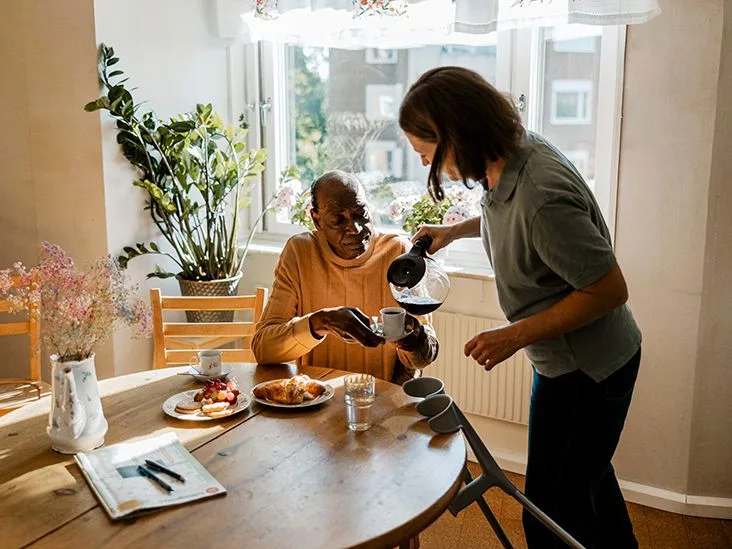
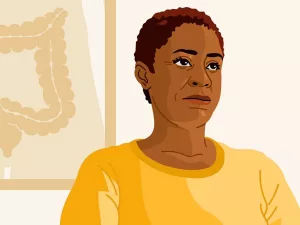

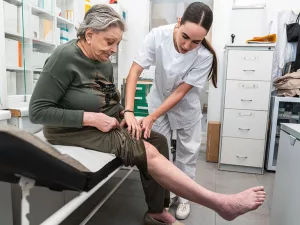

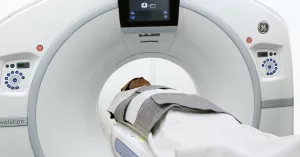
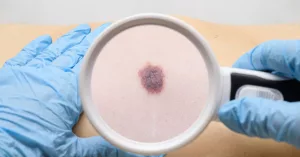








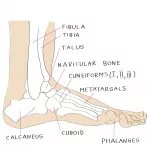








Leave a Reply
You must be logged in to post a comment.